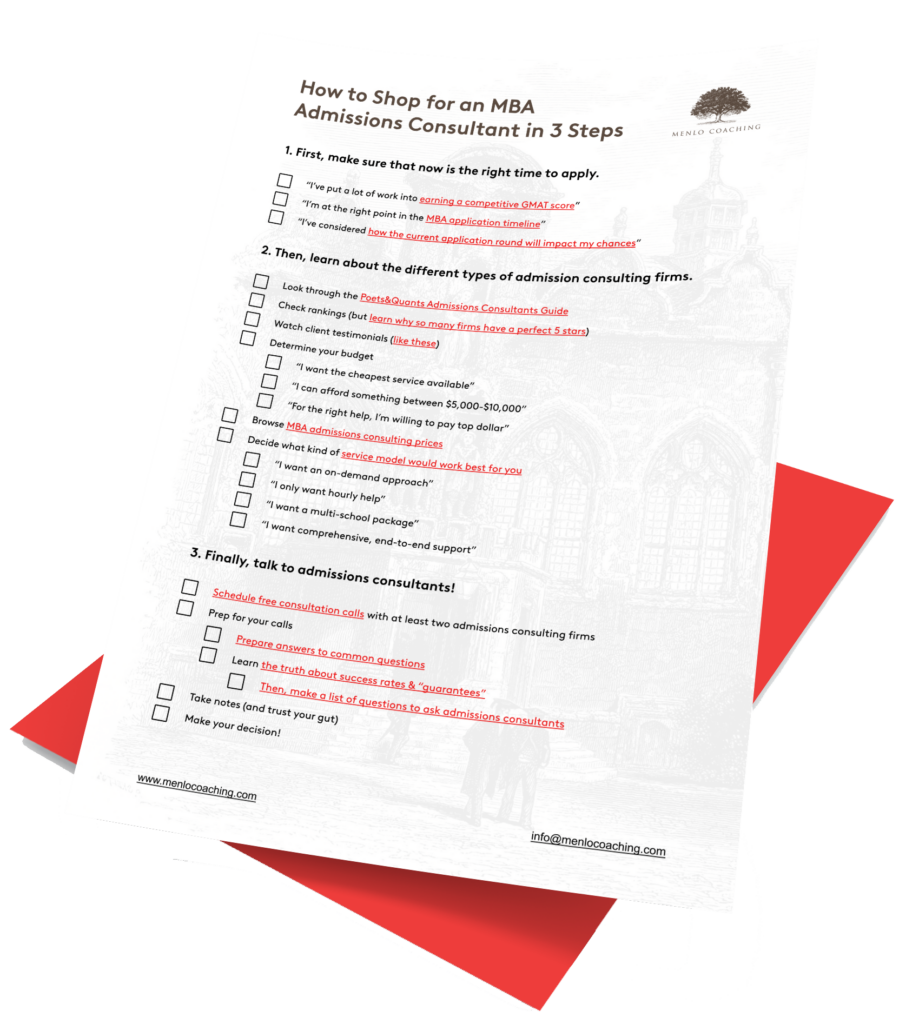
Wharton is a great business school across many areas. Although its strength as a finance program receives a lot of attention because of its excellent placement in that industry, Wharton is equally powerful in areas like entrepreneurship and technology, which are powered by huge investments Wharton has made in these areas. For example, the school launched Tangen Hall as the home for entrepreneurship at Wharton, created the San Francisco Campus to host one cohort of its Executive MBA program, and then used that San Francisco campus to host a rotating cast of full-time MBA students taking one semester away from Philadelphia through the Semester in San Francisco program.
Wharton’s MBA program is student led, with many “Fellows” programs allowing second-year students to take leadership roles in key areas, including admissions, leadership training, student life, academics, and career development. Outside of those programs, you’ll also be seeing a lot of your fellow students in your Learning Team, Cluster, and Cohort.
Wharton’s philosophy of “Give and Take” is based on star professor Adam Grant’s book of the same name, and the school seeks to enroll students who know how they will benefit from and contribute to the MBA program.
The breadth of the program, and the enormous resources of UPenn generally, make Wharton a business school that can help you to achieve almost any goal. (Which can make it a great choice if you’re still evaluating your exact post-MBA goals.
This profile lays out the basic facts about Wharton’s MBA program and the resources you’ll need to further research it.
For fast facts on getting into the Wharton MBA program see, Your Chances at Wharton: Acceptance Rate & Other Factors.
| Class Size | 888 |
| Acceptance Rate | 21% |
| GMAT Average | 735 |
| GPA Average | 3.7 |
| Average Age | Does not disclose |
| Avg. Years Work Experience | 5 |
| Diversity Women | 44% |
| Diversity Intl. | 26% |
| Pre-MBA Industries | Consulting: 31% PE/VC: 15% Nonprofit/Gov’t: 10% Investment Banking: 8% Technology: 8% Other: 8% Financial Services: 6% Health Care: 4% Investment Mgmt: 4% CPG: 2% Media/Entertainment: 1% Energy: 1% Real Estate: 1% Retail: 1% |
| Undergraduate Majors | Humanities: 36% Business: 32% STEM: 32% |
The data above is from the Wharton MBA Class Profile for the class of 2027. However, because few schools report acceptance rates in their class profiles, this stat is instead drawn from the most recent U.S. News data and may not refer to the same cohort as other data listed here.
| Salary Median | $175,000.00 |
| Signing Bonus | $33,750.00 |
| Offers Upon Graduation | Does not disclose |
| Offers At 3 Mos. | 88 |
| Post-MBA Industries | Financial Services: 36.6% Hedge Funds/Other Investments: 1.1% Insurance & Diversified Services: 2.1% Investment Banking/Brokerage: 15.2% Investment Management: 4.8% Private Equity/Buyouts/Other: 10% Venture Capital: 3.4% Consulting: 25.2% Technology: 14.1% Health Care: 5% Media, Entertainment & Sports: 3% Social Impact: 2.7% Legal & Professional Services: 2.1% Real Estate: 2% Energy: 1.8% Retail: 1.8% Manufacturing: 1.6% Consumer Products: 1.4% FinTech: 1.4% Travel & Hospitality: 0.5% Future Mobility: 0.5% |
| Post-MBA Locations | United States: 94% Mid-Atlantic: 12% Midwest: 3.6% Northeast: 46.8% South: 4.7% Southwest: 5% West: 21.5% International: 6% Asia: 3.9% Europe: 1.6% |
| Post-MBA Companies | Does not disclose |
| Career Development Resources |
The data above reflects the most recent career statistics available for Wharton MBA graduates
See the full report: Wharton MBA Employment Report
Our free, comprehensive checklist covers everything you need to shop for an MBA admissions consultant.

Unlike most two-year programs, the Wharton MBA curriculum includes an additional required “pre-term”, which students attend before beginning year one. Students can choose courses that span either a quarter or a full semester. The core curriculum consists of fixed and flexible core courses that can be taken either in year one or year two. Wharton’s elective curriculum allows students to choose from 200 electives across 10 of the academic departments within the business school. Students can also take up to four courses from the 11 other schools at the University of Pennsylvania.
Students can choose from 18 Wharton MBA majors. Most majors require the completion of 5 course units, and students also have the option of graduating with a double major.
In recent years, Wharton introduced 2 new concentrations: Environmental, Social & Governance Factors for Business and Diversity, Equity & Inclusion.
The McNulty Leadership Program and Wharton’s Center for Leadership and Change Management offer students a variety of experiential learning opportunities. These programs are complemented by the Wharton Leadership Ventures program, which offers students the option of outdoor experiential treks in the form of expeditions and intensives or one to three day-long workshops.
Wharton has over 20 research centers and initiatives in topics such as behavioral economics, entrepreneurship and innovation, finance, risk management, and social impact. The full list can be found on the Wharton Research Centers page.
The Wharton International Study Programs are comprised of:
Through the Combined International Study Degrees program at Wharton, students can pursue full interdisciplinary degrees through three institutions:
Wharton offers potential applicants the chance to schedule a phone conversation with one of their MBA Admissions advisors. During these conversations, potential applicants can ask questions about the MBA program, the application process, campus life, and other subjects pertaining to the Wharton experience.
Conversations take place with a small group of 2-3 other prospective applicants. Appointments are open to all those interested in learning more about Wharton, even if the potential applicant has no definite plans to apply.
Wharton asks that applicants come prepared with questions to make the most of the conversation.
Julia, a non-traditional applicant in fin-tech, rocked her business school applications and ended up receiving scholarships at Wharton (her dream school), Booth, MIT Sloan, Haas and got a full-ride at NYU Stern!
Hear how she navigated the MBA application process and ultimately won a spot in the Wharton MBA Class of 2021.
The latest application requirements set by the Wharton MBA admissions office are described below.
Here are Wharton’s most recent MBA essay prompts:
How do you plan to use the Wharton MBA program to help you achieve your future professional goals? You might consider your past experience, short and long-term goals, and resources available at Wharton. (text box, 500 words)
Taking into consideration your background – personal, professional, and/or academic – how do you plan to make specific, meaningful contributions to the Wharton community? (text box, 400 words)
Please share with the Admissions Committee how you have reflected and grown since your previous application and discuss any relevant updates to your candidacy (e.g., changes in your professional life, additional coursework, extracurricular/volunteer engagements, etc.). (250 words)
Take a look at our Guide to this year’s Wharton MBA admissions essays.
Working with an MBA application consultant can help you make the most of your Wharton MBA essays.
Because Learning Teams, Cohorts and Clusters are central to the Wharton experience, Wharton wants to recruit students who work well with others. The interview process is designed around this–if you’re invited to interview, you will participate in a team-based discussion, followed up by a short one-on-one interview with a student Admissions Fellow (or, depending on the location, an admissions committee member) who observed you during the group discussion.
The team-based discussion brings together a group of 4-6 applicants for a 35-minute discussion on a pre-announced discussion prompt dealing with some aspect of improving the Wharton MBA program. Previous discussion prompts have included what to do with alumni donations, launching a new course, or opening up a new facility on campus. This group discussion allows Wharton to gauge your skills in working together with a team.
After the team-based discussion, each applicant is invited to a 10-minute face-to-face interview. During this interview, you will likely be asked to reflect on how your group discussion went, as well as answer a few traditional questions (e.g. why you want an MBA, why you chose Wharton), and maybe an open-ended question asking about whether you’d like to share anything else about your candidacy.
Want to know more? Learn how to prepare for your Team Based Discussion.
McNulty Leadership Program: This is the umbrella program for almost all of Wharton’s leadership training programs, including the famous leadership ventures (want to trek to Antarctica with your classmates?), the P3 Program (Purpose, Passion, Principles), the Executive Coaching and Feedback Program, and more.
Technically, even the MGMT 610 course designed by Adam Grant falls under this umbrella.

Wharton Lauder program: This program combines the Wharton MBA with an MA in International Studies from Penn’s School of Arts & Sciences. Concentrations are available in:
*You must be fluent in a second language relevant to your concentration, and must apply in Round 1 or Round 2 only, because the program begins in May rather than August.
Semester in San Francisco: You can spend one semester in your second year at Wharton’s San Francisco campus, which provides a great networking opportunity with local tech companies — it’s much easier to secure informational interviews as a Wharton student than as an employed professional.
The Wharton MBA admissions process is highly competitive, and only a select number of qualified candidates even get invited to interview. Hiring an MBA Admissions Consultant can strengthen your application and substantially improve your chances of admission.
*All data retrieved from the Wharton Business School MBA Program webpages, unless otherwise stated.